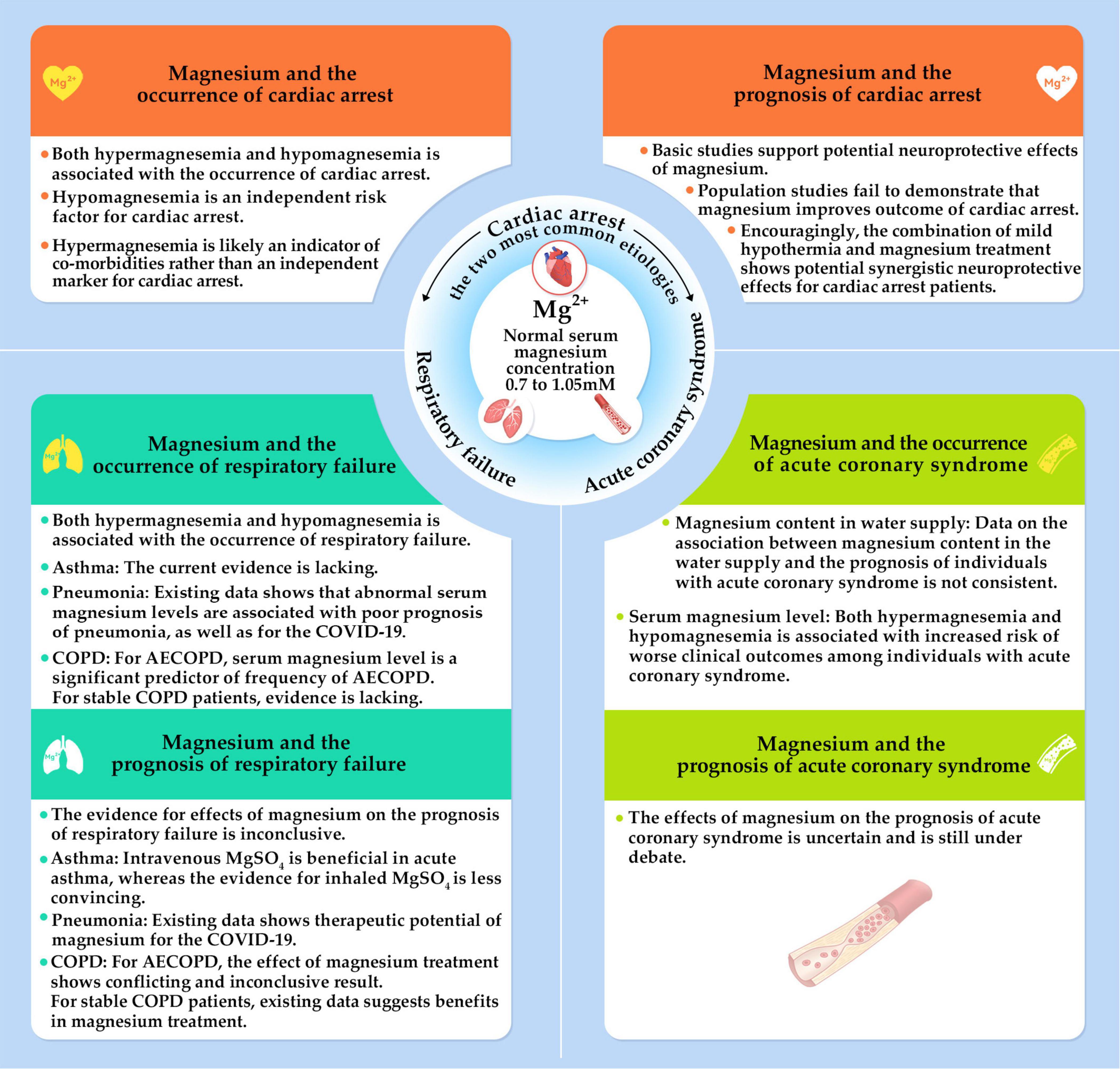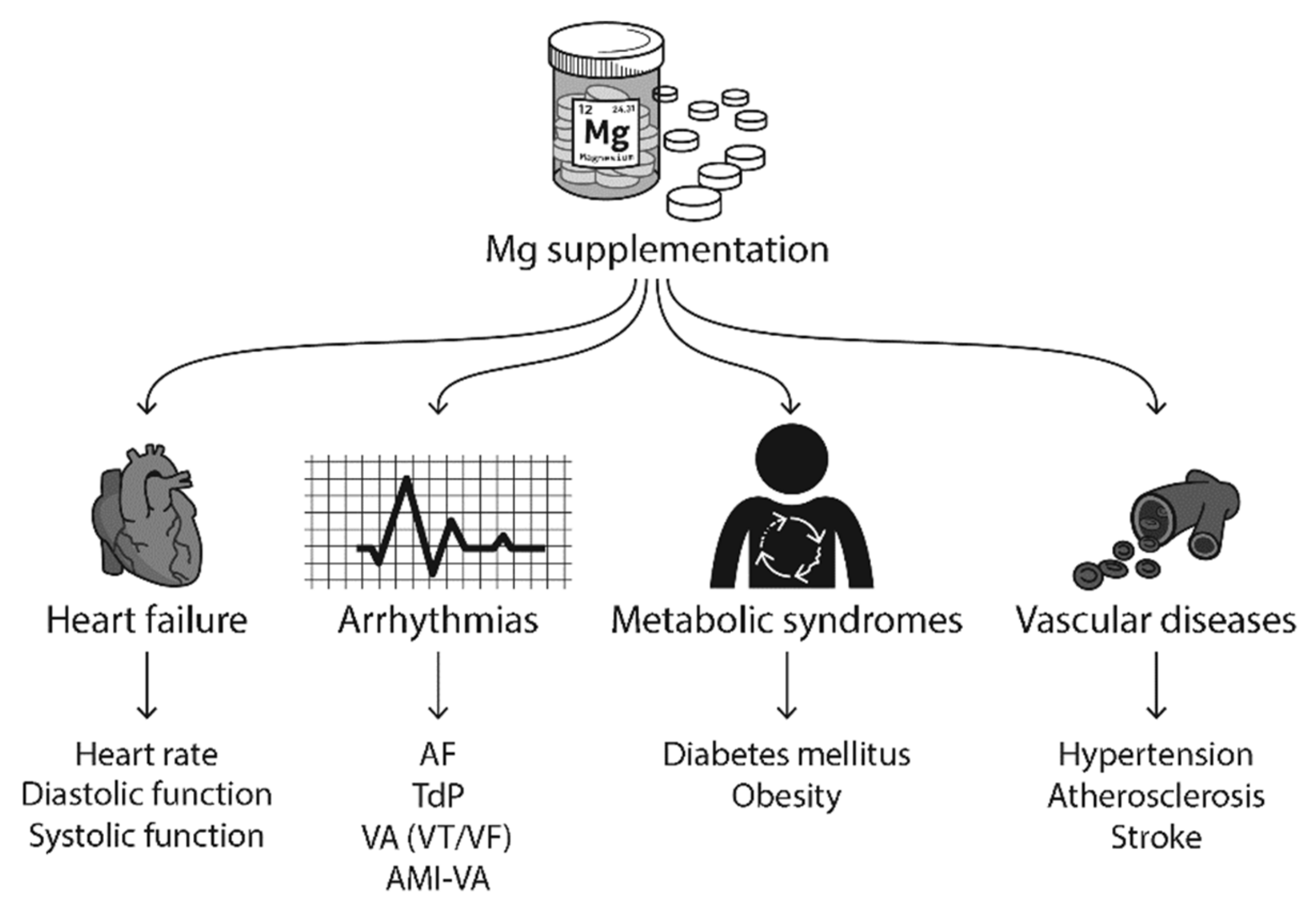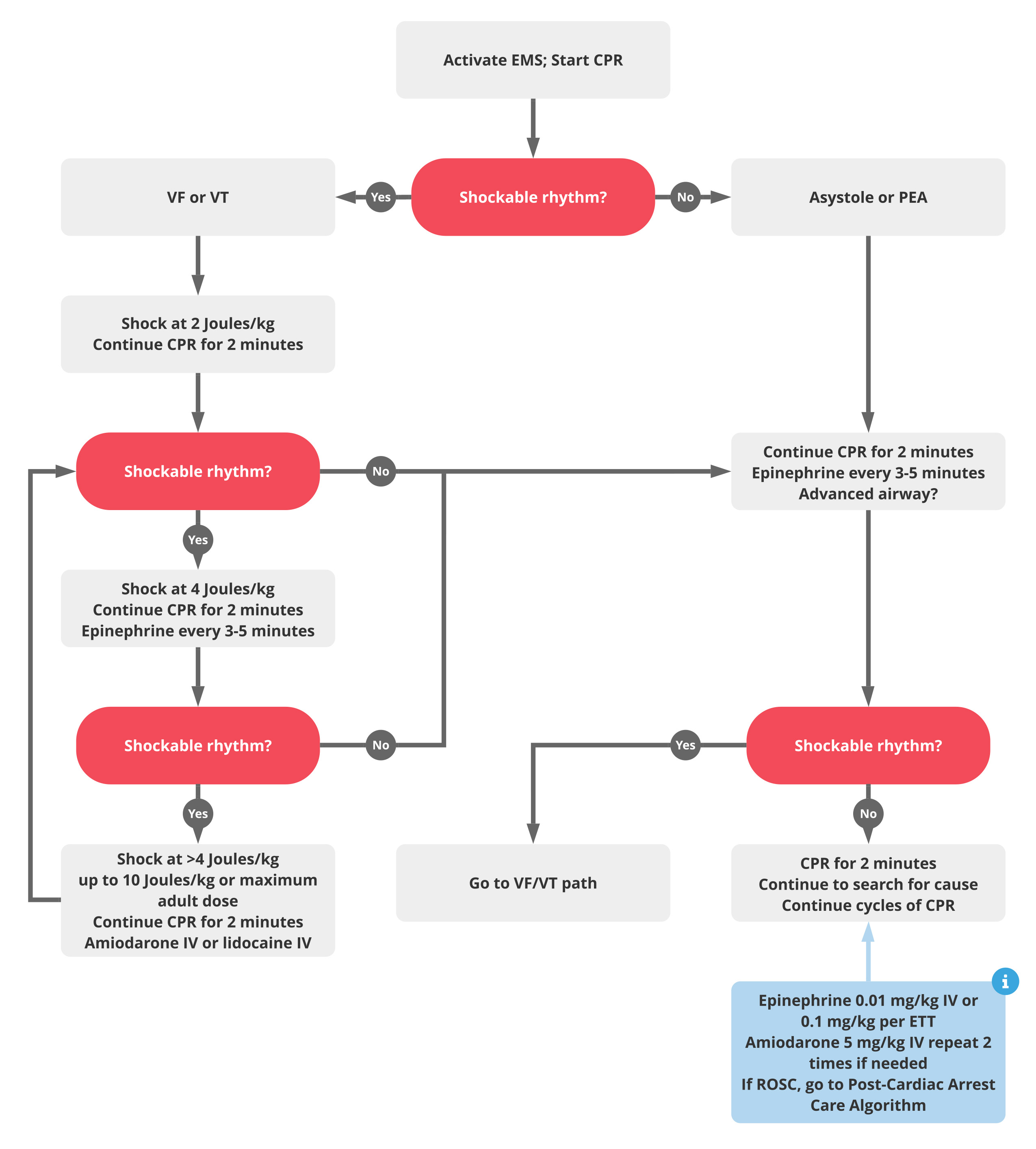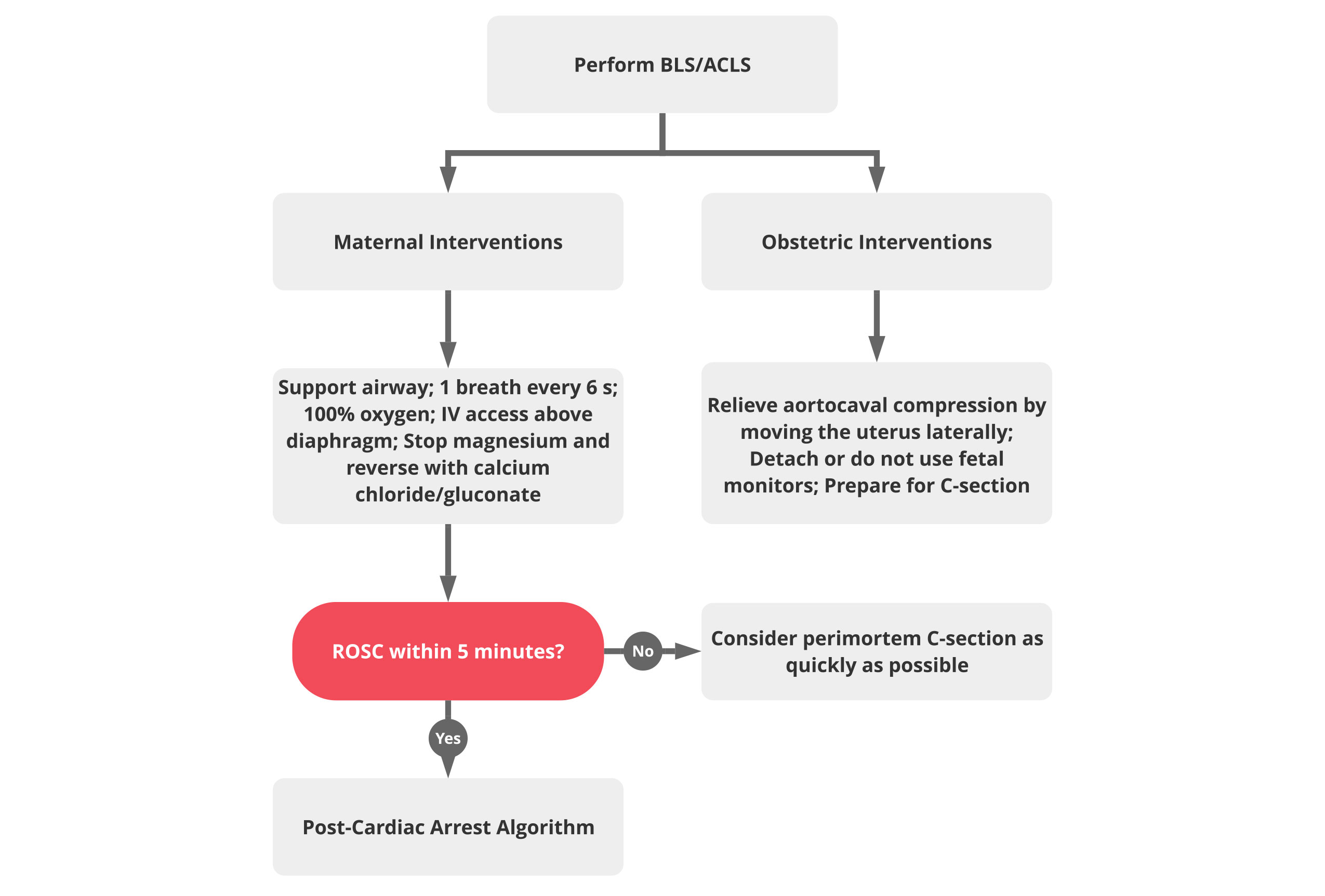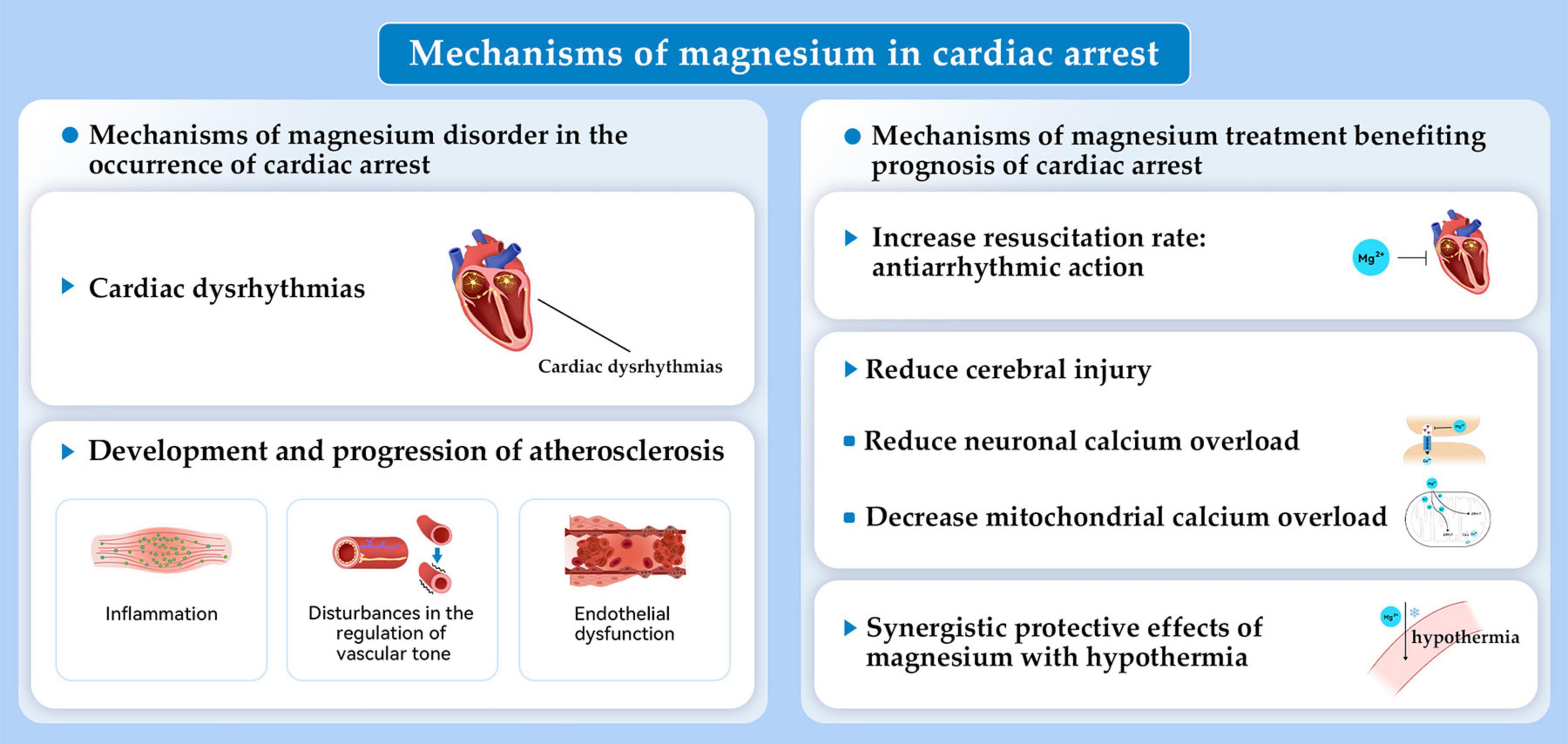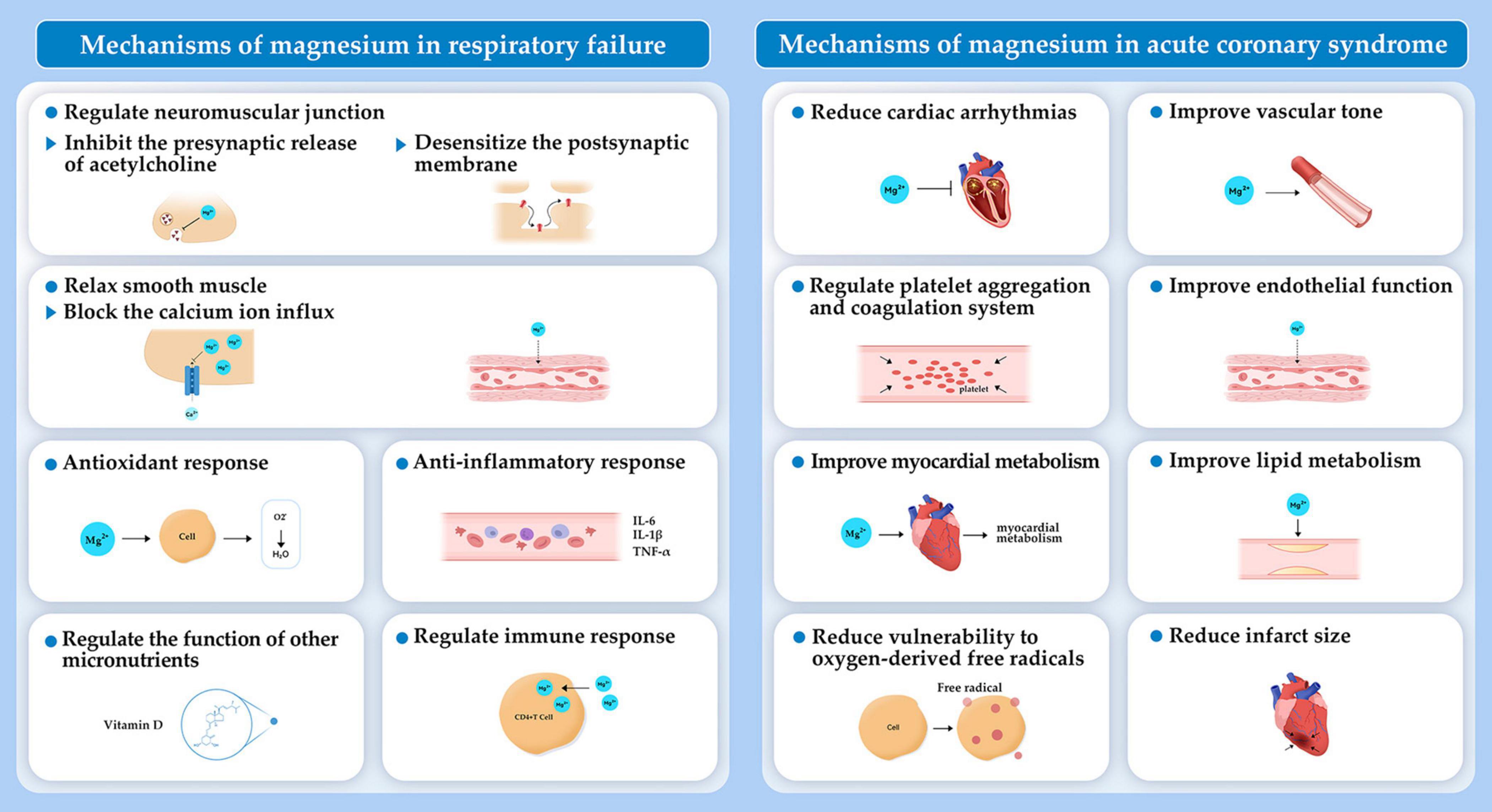When To Use Magnesium In Cardiac Arrest - Magnesium (mg) has important electrophysiological effects and normal concentrations are required to maintain regular. Here, we summarize studies on magnesium and the prognosis of cardiac arrest in basic studies, clinical studies, and the combined effect of. Magnesium sulfate is effective as an anticonvulsant and an antiarrhythmic. It is used to treat polymorphic ventricular tachycardia with a.
Here, we summarize studies on magnesium and the prognosis of cardiac arrest in basic studies, clinical studies, and the combined effect of. Magnesium sulfate is effective as an anticonvulsant and an antiarrhythmic. It is used to treat polymorphic ventricular tachycardia with a. Magnesium (mg) has important electrophysiological effects and normal concentrations are required to maintain regular.
It is used to treat polymorphic ventricular tachycardia with a. Here, we summarize studies on magnesium and the prognosis of cardiac arrest in basic studies, clinical studies, and the combined effect of. Magnesium sulfate is effective as an anticonvulsant and an antiarrhythmic. Magnesium (mg) has important electrophysiological effects and normal concentrations are required to maintain regular.
Frontiers The role of magnesium in cardiac arrest
Magnesium (mg) has important electrophysiological effects and normal concentrations are required to maintain regular. It is used to treat polymorphic ventricular tachycardia with a. Here, we summarize studies on magnesium and the prognosis of cardiac arrest in basic studies, clinical studies, and the combined effect of. Magnesium sulfate is effective as an anticonvulsant and an antiarrhythmic.
Magnesium And Anaesthesia WFSA Resources
Magnesium sulfate is effective as an anticonvulsant and an antiarrhythmic. It is used to treat polymorphic ventricular tachycardia with a. Magnesium (mg) has important electrophysiological effects and normal concentrations are required to maintain regular. Here, we summarize studies on magnesium and the prognosis of cardiac arrest in basic studies, clinical studies, and the combined effect of.
Antioxidants Free FullText Magnesium, Oxidative Stress
Here, we summarize studies on magnesium and the prognosis of cardiac arrest in basic studies, clinical studies, and the combined effect of. It is used to treat polymorphic ventricular tachycardia with a. Magnesium (mg) has important electrophysiological effects and normal concentrations are required to maintain regular. Magnesium sulfate is effective as an anticonvulsant and an antiarrhythmic.
Rapid Treatment with Intramuscular Magnesium Sulfate During
Magnesium (mg) has important electrophysiological effects and normal concentrations are required to maintain regular. Magnesium sulfate is effective as an anticonvulsant and an antiarrhythmic. It is used to treat polymorphic ventricular tachycardia with a. Here, we summarize studies on magnesium and the prognosis of cardiac arrest in basic studies, clinical studies, and the combined effect of.
PALS Certification Pediatric Advanced Life Support
Magnesium sulfate is effective as an anticonvulsant and an antiarrhythmic. Here, we summarize studies on magnesium and the prognosis of cardiac arrest in basic studies, clinical studies, and the combined effect of. It is used to treat polymorphic ventricular tachycardia with a. Magnesium (mg) has important electrophysiological effects and normal concentrations are required to maintain regular.
Part 7.2 Management of Cardiac Arrest Circulation
Magnesium sulfate is effective as an anticonvulsant and an antiarrhythmic. It is used to treat polymorphic ventricular tachycardia with a. Magnesium (mg) has important electrophysiological effects and normal concentrations are required to maintain regular. Here, we summarize studies on magnesium and the prognosis of cardiac arrest in basic studies, clinical studies, and the combined effect of.
ACLS InHospital Cardiac Arrest in Pregnancy Algorithm ACLS Medical
Here, we summarize studies on magnesium and the prognosis of cardiac arrest in basic studies, clinical studies, and the combined effect of. It is used to treat polymorphic ventricular tachycardia with a. Magnesium sulfate is effective as an anticonvulsant and an antiarrhythmic. Magnesium (mg) has important electrophysiological effects and normal concentrations are required to maintain regular.
Pulseless ventricular tachycardia
Magnesium sulfate is effective as an anticonvulsant and an antiarrhythmic. Here, we summarize studies on magnesium and the prognosis of cardiac arrest in basic studies, clinical studies, and the combined effect of. It is used to treat polymorphic ventricular tachycardia with a. Magnesium (mg) has important electrophysiological effects and normal concentrations are required to maintain regular.
Frontiers The role of magnesium in cardiac arrest
Here, we summarize studies on magnesium and the prognosis of cardiac arrest in basic studies, clinical studies, and the combined effect of. Magnesium sulfate is effective as an anticonvulsant and an antiarrhythmic. Magnesium (mg) has important electrophysiological effects and normal concentrations are required to maintain regular. It is used to treat polymorphic ventricular tachycardia with a.
Frontiers The role of magnesium in cardiac arrest
Magnesium sulfate is effective as an anticonvulsant and an antiarrhythmic. It is used to treat polymorphic ventricular tachycardia with a. Here, we summarize studies on magnesium and the prognosis of cardiac arrest in basic studies, clinical studies, and the combined effect of. Magnesium (mg) has important electrophysiological effects and normal concentrations are required to maintain regular.
Magnesium (Mg) Has Important Electrophysiological Effects And Normal Concentrations Are Required To Maintain Regular.
Magnesium sulfate is effective as an anticonvulsant and an antiarrhythmic. It is used to treat polymorphic ventricular tachycardia with a. Here, we summarize studies on magnesium and the prognosis of cardiac arrest in basic studies, clinical studies, and the combined effect of.
